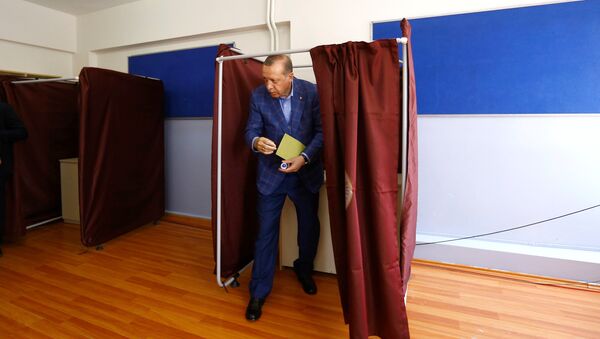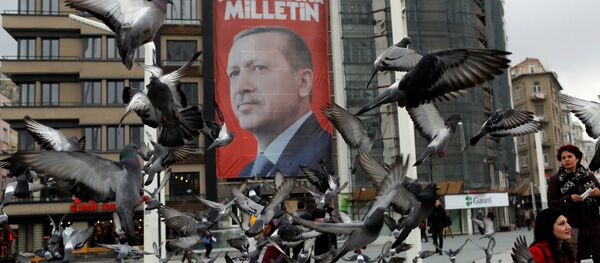In a bid to win the votes of the fence-sitters, the government is strengthening ties with Iran and Russia by participating in the Geneva and Astana talks on ending the conflict in Syria.
“Turkey’s continued participation in the Astana and Geneva talks has nothing to do with Sunday’s referendum. Turkey highly values the ceasefire achieved thanks to the concerted effort by Russia and Iran, and which meets our strategic interests and long-term plans,” Birol Akgun told Sputnik Turkey.
He explained Ankara’s support for the recent US missile attack on a military base in Syria by a desire to end the Syrian army’s military campaign in Idlib, which could send a new wave of Syrian refugees running towards the Turkish border.
“We already have about 3.5 million Syrian refugees here and more of them coming in could antagonize the local population. This, in turn, could impact the outcome of Sunday’s vote,” Professor Akgun emphasized.
He said that Deputy Prime Minister Mehmet Sinsek’s upcoming visit to Moscow reflected Ankara’s desire to broaden trade and other economic coperation with Russia.
“President Erdogan’s telephone linkup with President Putin [on Thursday] underscored his desire to have a long-term strategic partnership with Russia. That friendly exchange, which came amid rumors about a new cool in bilateral relations over the situation in Syria, allayed all doubts about this,” Birol Akgun noted.
He added that many in Turkey welcomed President Erdogan’s call to Putin and the announcement of Vice Premier Simsek’s planned visit to Moscow.
“Though not directly related to Sunday’s referendum, this could influence its outcome because all influential politicalns and reasonable people in Turkey are holding out for closer ties with Russia,” Professor Akgun emphasized.
If passed, the amendments to the constitution would dramatically expand President Erdogan's powers.
Although "yes" campaigners currently slightly lead in polls, it is hard to make any predictions, and political tension remains high.
Since the failed coup in July 2016, more than 130,000 teachers, civil servants, academics and state officials have been fired, and nearly 50,000 arrested.
Never miss a story again — sign up to our Telegram channel and we'll keep you up to speed!





